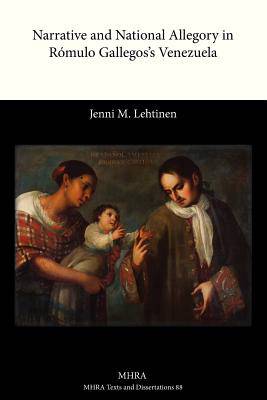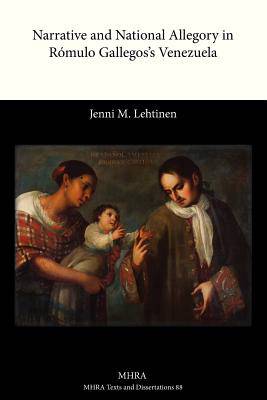
Bedankt voor het vertrouwen het afgelopen jaar! Om jou te bedanken bieden we GRATIS verzending (in België) aan op alles gedurende de hele maand januari.
- Afhalen na 1 uur in een winkel met voorraad
- In januari gratis thuislevering in België
- Ruim aanbod met 7 miljoen producten
Bedankt voor het vertrouwen het afgelopen jaar! Om jou te bedanken bieden we GRATIS verzending (in België) aan op alles gedurende de hele maand januari.
- Afhalen na 1 uur in een winkel met voorraad
- In januari gratis thuislevering in België
- Ruim aanbod met 7 miljoen producten
Zoeken
Narrative and National Allegory in Romulo Gallegos's Venezuela
Jenni M Lehtinen
€ 36,95
+ 73 punten
Uitvoering
Omschrijving
Venezuela's preeminent educator, politician, and most important author Rómulo Gallegos (1884-1969) left a lasting imprint on how Venezuelans conceive of their national history and identity. Jenni Lehtinen offers the first full-length study of Gallegos's later Venezuelan novels, 'Canaima' (1935), 'Pobre negro' (1937), and 'Sobre la misma tierra' (1943), which have been up to now eclipsed by the critical attention devoted to 'Doña Bárbara' (1929). By combining close-readings organized around national allegory and narrative structure with discussions about Gallegos's socio-political essays, the study reveals previously ignored, radical developments in the Venezuelan author's ideologies. Through her bold reinterpretation of the later novels, Lehtinen reveals Gallegos as a far more innovative writer than has been traditionally appreciated. Jenni Lehtinen completed her doctoral studies in Spanish American literature at Wolfson College, University of Oxford, where she has held various teaching posts and lectured on Nation and Narration.
Specificaties
Betrokkenen
- Auteur(s):
- Uitgeverij:
Inhoud
- Aantal bladzijden:
- 190
- Taal:
- Engels
- Reeks:
Eigenschappen
- Productcode (EAN):
- 9781907322808
- Verschijningsdatum:
- 14/01/2013
- Uitvoering:
- Paperback
- Formaat:
- Trade paperback (VS)
- Afmetingen:
- 156 mm x 234 mm
- Gewicht:
- 272 g

Alleen bij Standaard Boekhandel
+ 73 punten op je klantenkaart van Standaard Boekhandel
Beoordelingen
We publiceren alleen reviews die voldoen aan de voorwaarden voor reviews. Bekijk onze voorwaarden voor reviews.









